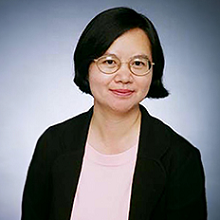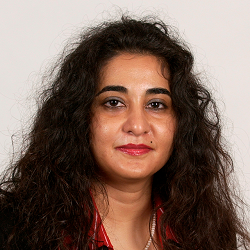Promoting the Ethical Use of Generative (GenAI) in Education will discuss three major concerns in GenAI use in education, share questions and approaches to address these ethical considerations by adopting five principles of AI ethics, and explore the development of a classroom AI use policy as one governance mechanism for promoting ethical use of AI.
Type: Instructor-Led
Delivery Method: Online
Duration: 1.5 hours
Date & Time
May 15, 2025
2PM – 3:30PM, ET
Registrations are intended for individual use only. For “watch parties” and group registrations, please contact learning@asee.org for discounted group rates.
Registration Fees
ASEE Member: $79
Non-member: $129

Though Generative AI (GenAI) has the potential to transform learning and teaching, educators have raised ethical concerns, particularly related to the adverse effect on student learning if students simply parrot GenAI-generated content without engaging in critical analysis or original thought.
This micro course will discuss three major concerns in generative AI use in education, share questions and approaches to address these ethical considerations by adopting five principles of AI ethics, and explore the development of a classroom AI use policy as one governance mechanism for promoting ethical use of AI.
The course will include opportunities for educators to collaboratively define the terms of engagement with GenAI in educational settings and to begin this discourse by sharing insights and experiences with promoting the ethical use of GenAI.
 Xuefei (Nancy) Deng, PhD
Xuefei (Nancy) Deng, PhD
Professor, Information Sciences
California State University, Dominguez Hills
Xuefei (Nancy) Deng is a professor of information systems in the College of Business Administration and Public Policy at California State University, Dominguez Hills. She received her Ph.D. in information systems from Carnegie Mellon University. She is the co-PI of a grant totaling $5.3 M grant from the Connecting Minority Communities pilot program of the US National Telecommunications and Information Administration. Nancy’s research interests include crowdsourcing, AI and digital discrimination, AI and education, digital and social media, STEM career, and social inclusion.
Her research work has been published in journals such as MIS Quarterly, Journal of Management Information Systems, Journal of the Association for Information Systems, Information Systems Journal, Decision Support Systems, Information Technology & People, and Journal of Information Systems Educations, among others. She serves as an associate editor for Information Systems Journal and Information and Organization, and co-chairs the invited special track on Information Technology, Social Justice, and Marginalized Contexts at the 57th and 58th Hawaii International Conference on Systems Science (HICSS -57 & 58). Currently, she serves as the co-editor-in-chief of The Data Base for Advances in Information Systems.
 K.D. Joshi, PhD
K.D. Joshi, PhD
Professor, Information Systems
University of Nevada, Reno
K. D. Joshi is a Professor of Information Systems in the College of Business at the University of Nevada, Reno. She received her Master of Science in Engineering from the University of Michigan and received her Doctor of Philosophy in Business Administration (Decision Sciences and Information Systems) from the University of Kentucky.
Her published research is cited over 5,570 times (an h-index of 27) according to Google Scholar and her research has been featured in numerous media outlets such PBS NewsHour, Salon.com, Vancouver Business Journal, London School of Economic Business Review, Puget Sound Business Journal, & Military.Com. She has been a Principal Investigator or Co-Principal Investigator on grants totaling over $5M from the National Science Foundation (NSF). Her research has appeared in journals such as MIS Quarterly, Information Systems Research, Journal of the AIS, Information Systems Journal, Decision Support Systems, IEEE Transactions of Engineering Management, and Communications of the ACM. She has served on numerous leadership positions at ICIS, HICSS, and AMCIS conferences. She is currently on the Information Systems Journal and Journal of AIS editorial boards. Dr. Joshi has won multiple teaching innovation grants. Her engineering and business educational backgrounds allow her to design and deliver technology-related courses which have a unique blend of both technical and managerial focus.
